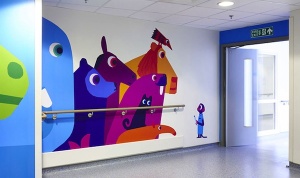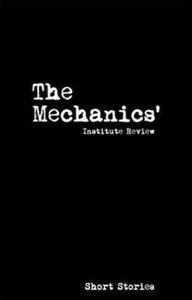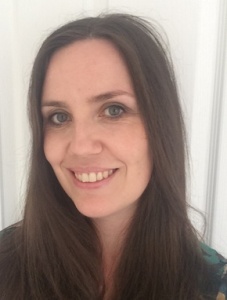What to do when you can’t do anything
by Stephanie Hutton
Mural on the children’s ward of Royal London Hospital, Whitechapel by Chris Haughton
The consultant is still talking, fingertips poised on his desk as if he is about to play a concerto. Unsettling minor-key melodies fill the room, yet I feel nothing while I weep. Palliative is a pretty word. It masks a horror that should not wrap its spindly legs around my three-year-old. A greying moustache hangs over his top lip. I watch the curve of his tongue as he says that word again. His dishevelled hair flaps on his head as he nods along, looking down at his notes.
“Here are some leaflets on hospice care, support for you afterwards and so forth. The nurses will explain.”
Then it comes. Fiery and raw, the strength blasts up from my stomach and down my arm. I grab the back of his head and slam his face into the desktop, crunching his glasses into podgy flesh. The force of my thrust pushes his head right through the oak. Cardboard files of nameless others fall through the gap and trap him under their weight.
I press Pause. A welcome silence holds me upright as the wall clock stops its countdown. Peering through the window I see a world that I can’t allow to carry on, not yet. Traffic is frozen into patient queues; a bird dangles in the air mid-descent.
Hope pours down my veins and pools on the grey tiles underneath my feet like lost petrol on the driveway. I step out of the puddle and into the hospital corridor. The statues around me clutch clipboards, stare at phones, hold hands. My feet march to Ella’s ward. I hate every pastel princess and tumbling clown painted on these walls, smiling down at our children’s suffering.
I kiss her head and whisper my love to her. The words turn to diamonds, glimmering at the corners of her eyes and cascading down her cheeks.”
In the first bay, a bony teenage boy is captured in the moment just before he unhooks himself from the tube going into his arm. The nurse caught striding across the shiny floor seems familiar. Her hair is scraped into a tight bun to help keep a smile on her face. My girl is curled up on a beanbag in the reading corner. She frowns in concentration. Wisps of new doll-like hair glow on her temples. In the stillness, I crouch down and try to find a smell that belongs to her. With my cheek against hers, I dream of a time before this. Of early Sunday mornings with her wriggling beside me, telling me jokes that make no sense. Both of us giggling without knowing why.
I place my hand over hers. I wish we could stay in this embrace for ever – but this is not a forever I wish for her. I kiss her head and whisper my love to her. The words turn to diamonds, glimmering at the corners of her eyes and cascading down her cheeks. Reaching into her, I steal a small ball of cells and place them in the locket around my neck.
 Back in the car park, I remove the parking fine from the windscreen and throw it with the others on the seat behind me. In the next row, a woman in crumpled clothes holds her hand across her brow as if that will help her recall where she parked this morning, perhaps before she earned the title “widow”. Mere moments have changed who we are. I unpause the scene. The woman turns her head from left to right, scanning each row helplessly.
Back in the car park, I remove the parking fine from the windscreen and throw it with the others on the seat behind me. In the next row, a woman in crumpled clothes holds her hand across her brow as if that will help her recall where she parked this morning, perhaps before she earned the title “widow”. Mere moments have changed who we are. I unpause the scene. The woman turns her head from left to right, scanning each row helplessly.
My foot vibrates against the pedal as I race back to the village. At the health centre, I swing into a space marked “Doctors only”. The receptionist shakes her head at me, her red talons tapping against the glass between us as I march past and throw open the door that leads to the doctor’s office. Afternoon clinic does not start for another thirty minutes. I unfasten the locket and place the nest of cells into my left palm. He jumps as I burst into the room. His jaw tightens as he recognises me. This man who sent me and Ella away again and again. Who told me to stop worrying, to get some rest. Maybe have a spa day. He mumbles some formalities while looking at what must be an interesting spot on the wall. I fake a stumble and as he recoils from the discomfort of human contact, my left hand sneaks through his blue shirt and taut flesh. Tucked under his stomach, his pancreas squishes against my fingertips as I embed the cells into their new home. I pull back and apologise with a smile. He will feel unwell for a while. His wife will call it work stress. By the time he turns yellow, it will be too late to halt.
On my way out of the building, I smash my elbow against the fire alarm. As the bells scream at the staff to get out, I slam my hand onto the fire door and seal it shut with the heat of my rage. They will know the panic and confusion of realising there is no way out. For an hour or two, anyway.
Back at the house, I drop my bags in the hallway and check for lights. My husband is still in his bed after a night shift. I hadn’t told him about today’s appointment. Over the last eight months we have settled into a silence, swerving between stalagmites of unspoken words as we pass through the house doing those things that seem to need doing. Our shared bed broke in two from the weight of our pain. He moved to the spare room.
I stride the stairs and plan the words I must say. They have done all they can do. This man who can sleep as though there is no crying to be done. Who plays golf as I pull out clumps of my hair that are no use to anyone. He stirs as I enter. We look straight at each other. I curl up next to him on the bed. He cannot read my face and I cannot speak. His hand reaches up and touches my forehead, cups my chin. My face melts into his palm and he reads the Braille of my tears. He sobs from his stomach and holds me so tight I wonder what it would be like if I never inhaled again.
from The Mechanics’ Institute Review issue 14, Autumn 2017 (Birkbeck, £10)
 Stephanie Hutton is a writer and clinical psychologist based in Staffordshire. Her short-form work has been published widely online and in print. She has been placed in competitions including National Flash-Fiction Day, shortlisted for the Brighton Prize for flash fiction, and was highly commended in the 2016 InkTears Short Story Contest. Most recently she was selected for the Writing West Midlands 2017/18 Room 204 Writer Development Programme for emerging writers, and shortlisted for the 2017 Bristol Short Story Prize. The Mechanic’s Institute Review is a new nationwide anthology by Birkbeck, University of London, showcasing the best short story writing from across the UK. The book collects 24 stories selected from an open submissions process, alongside new writing from award-winning authors Jenn Ashworth and Alan Beard.
Stephanie Hutton is a writer and clinical psychologist based in Staffordshire. Her short-form work has been published widely online and in print. She has been placed in competitions including National Flash-Fiction Day, shortlisted for the Brighton Prize for flash fiction, and was highly commended in the 2016 InkTears Short Story Contest. Most recently she was selected for the Writing West Midlands 2017/18 Room 204 Writer Development Programme for emerging writers, and shortlisted for the 2017 Bristol Short Story Prize. The Mechanic’s Institute Review is a new nationwide anthology by Birkbeck, University of London, showcasing the best short story writing from across the UK. The book collects 24 stories selected from an open submissions process, alongside new writing from award-winning authors Jenn Ashworth and Alan Beard.
Read more
stephaniehutton.com
@tiredpsych

